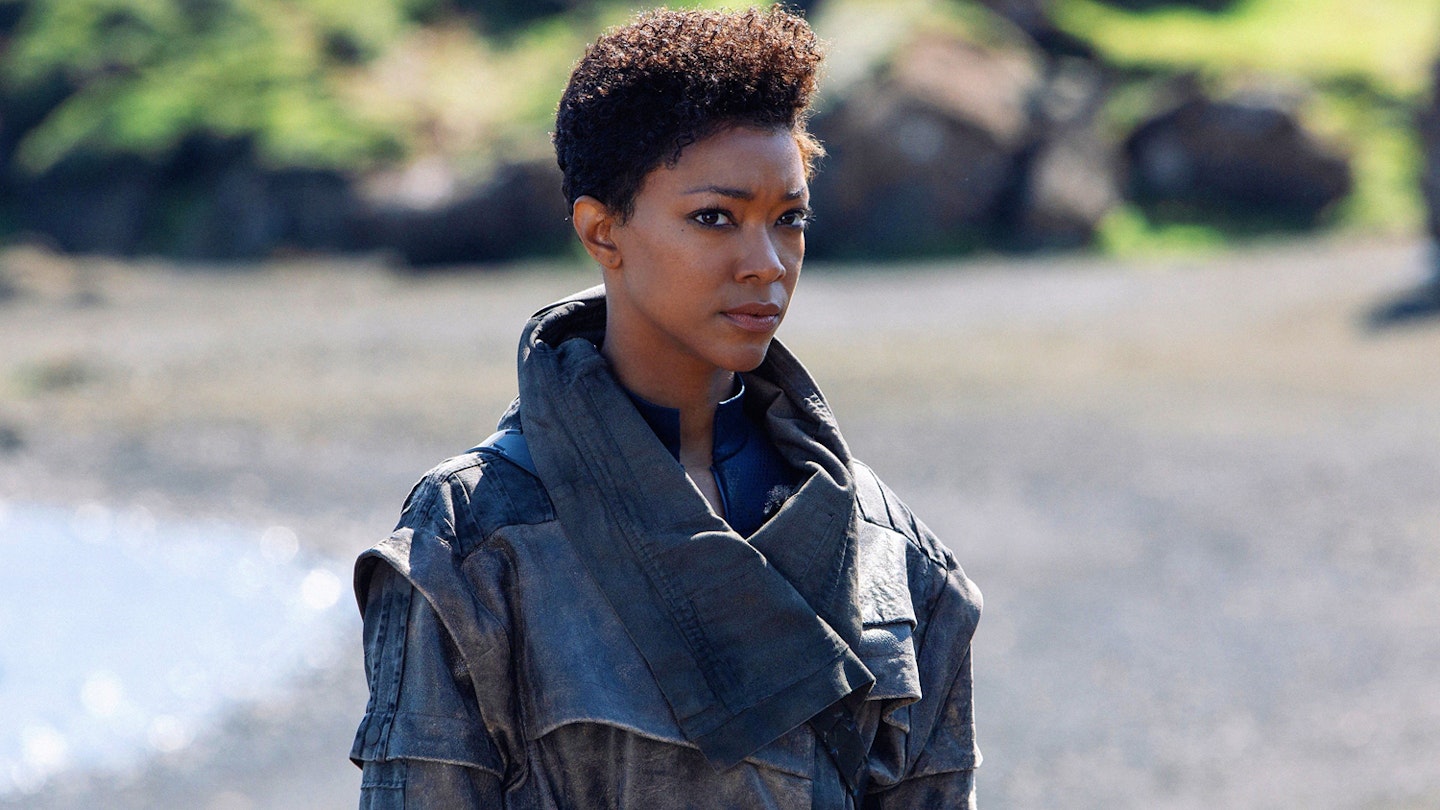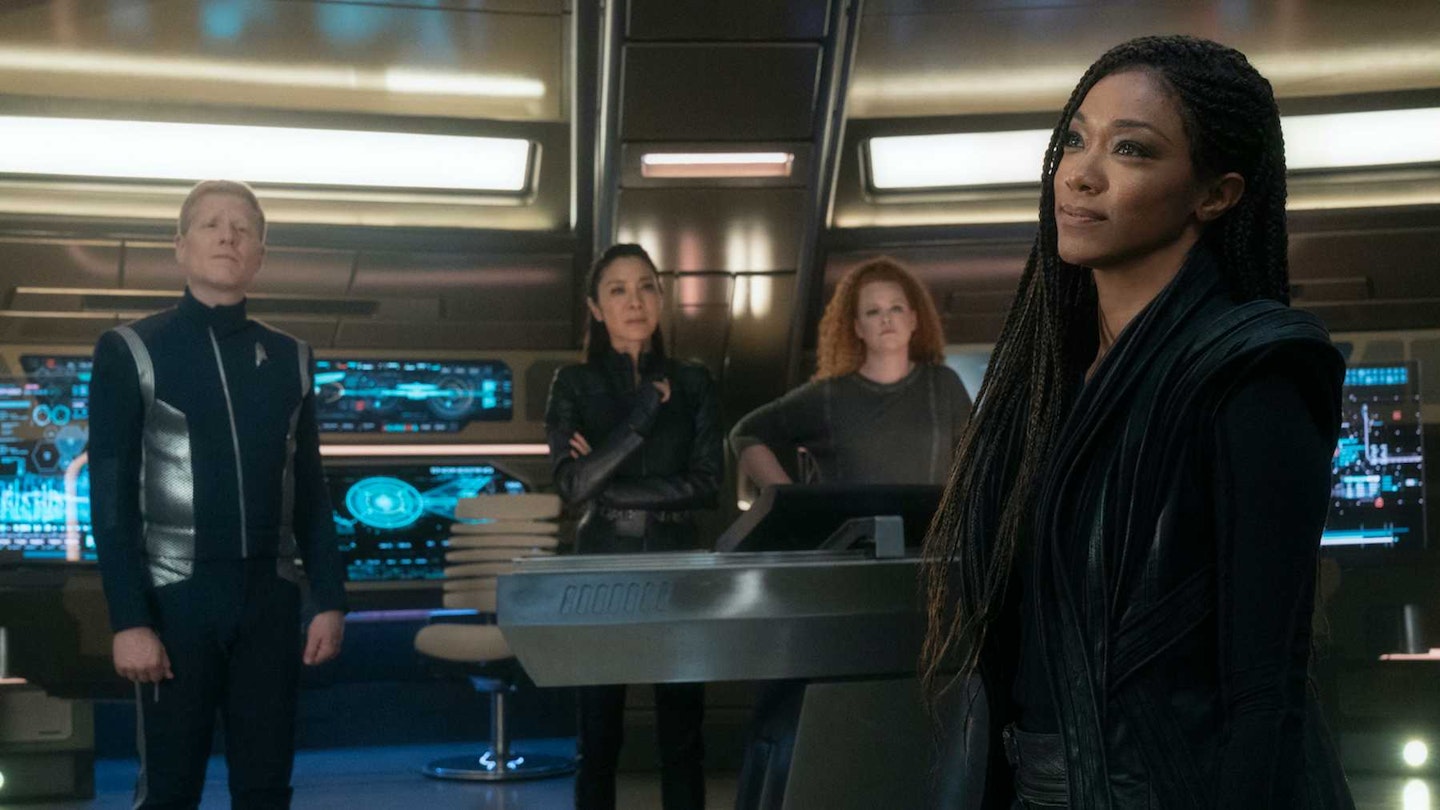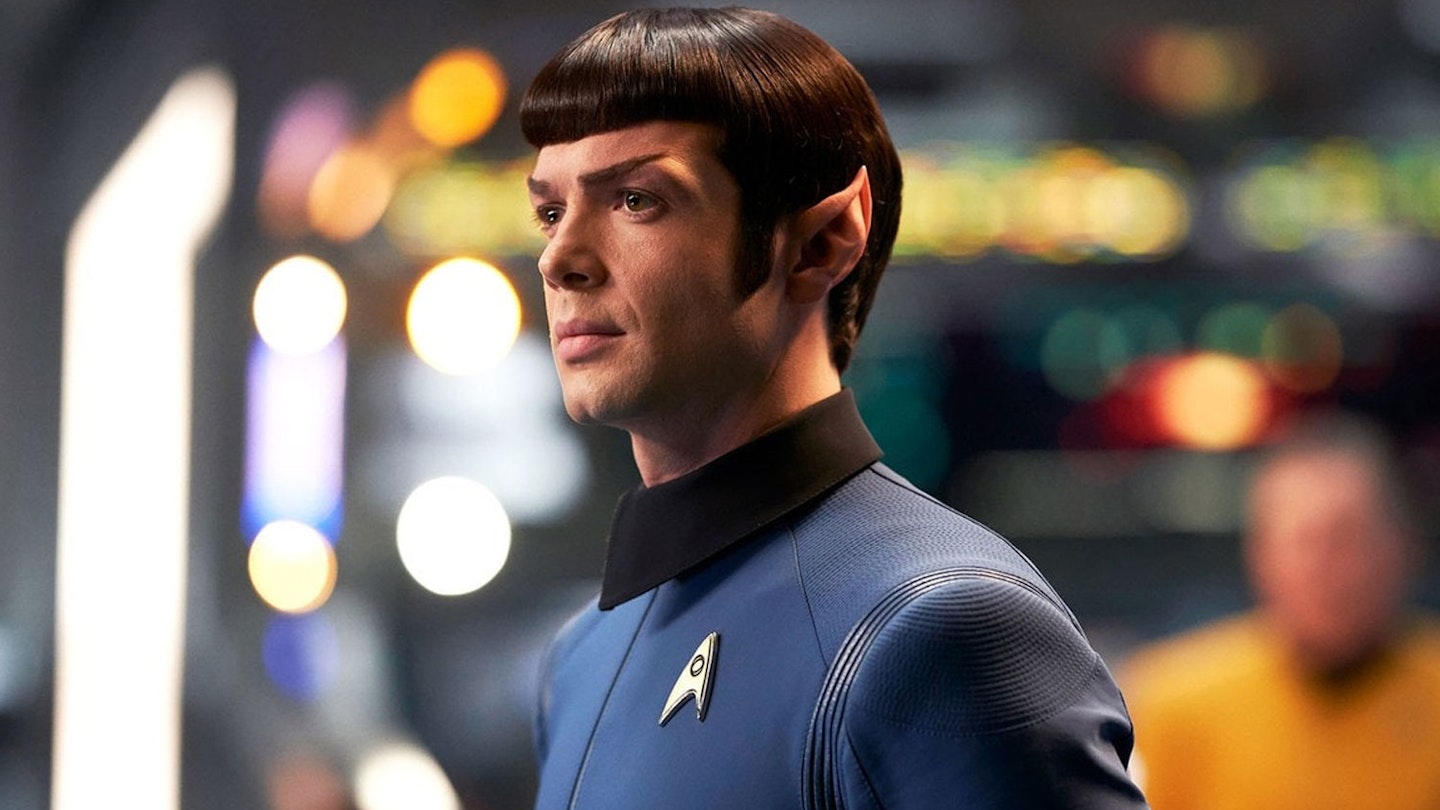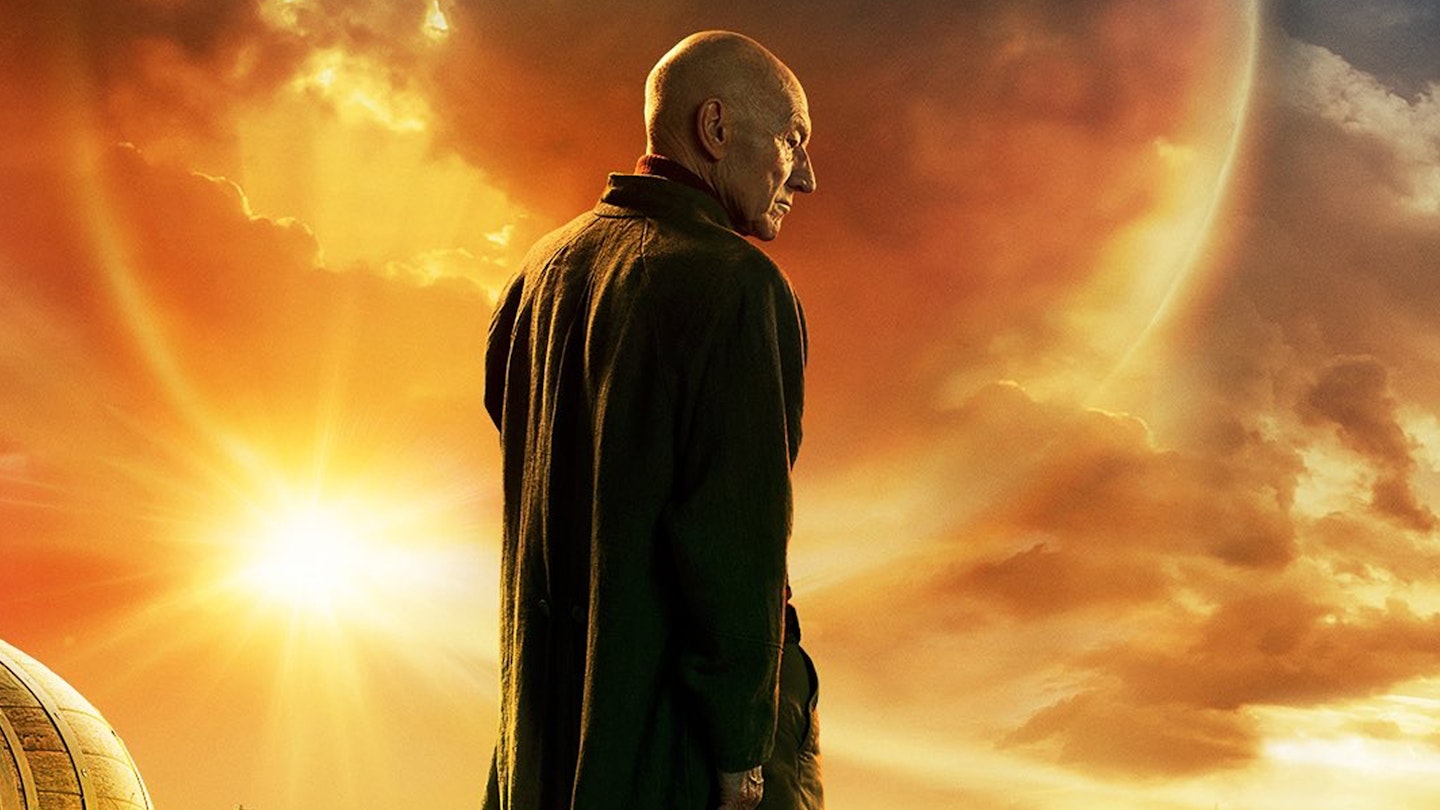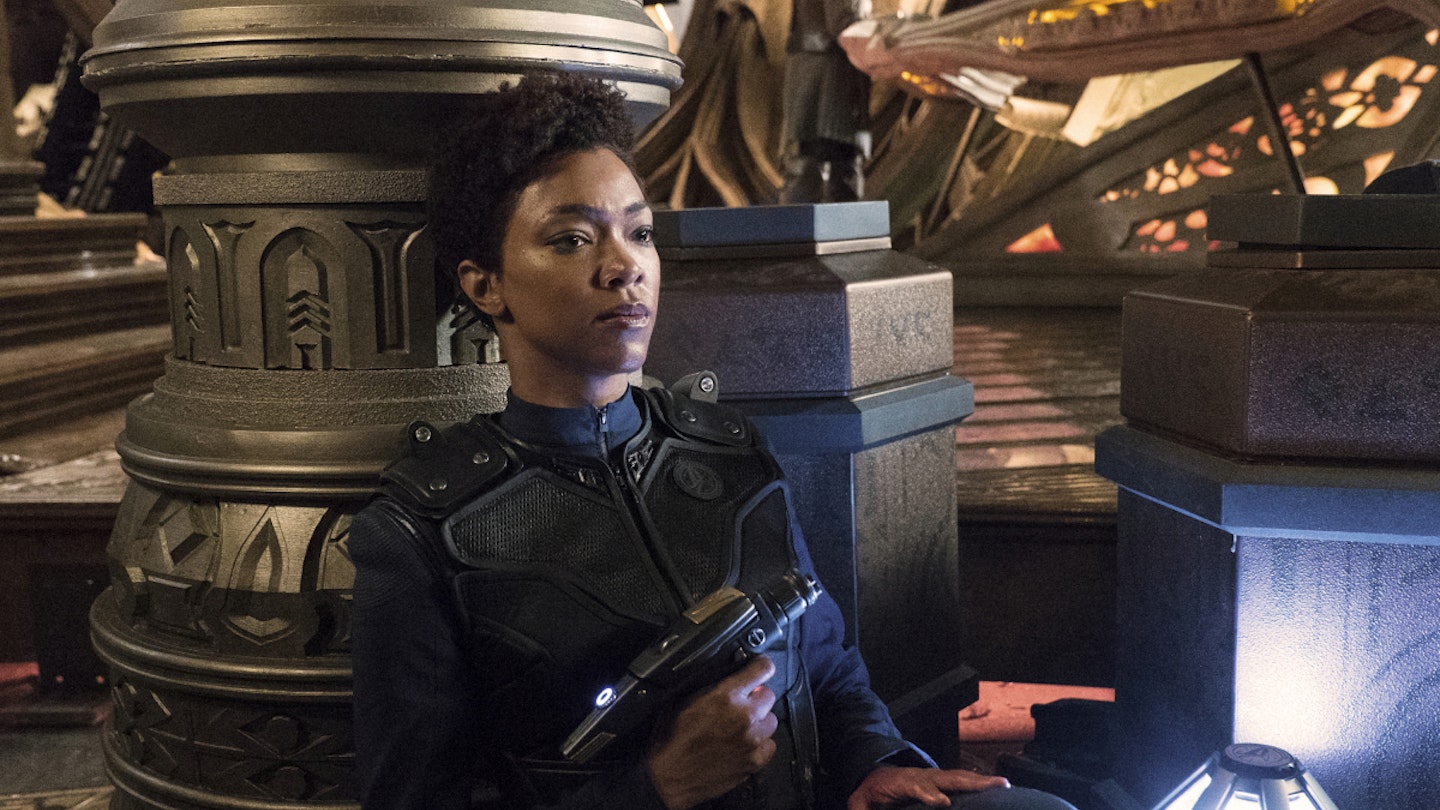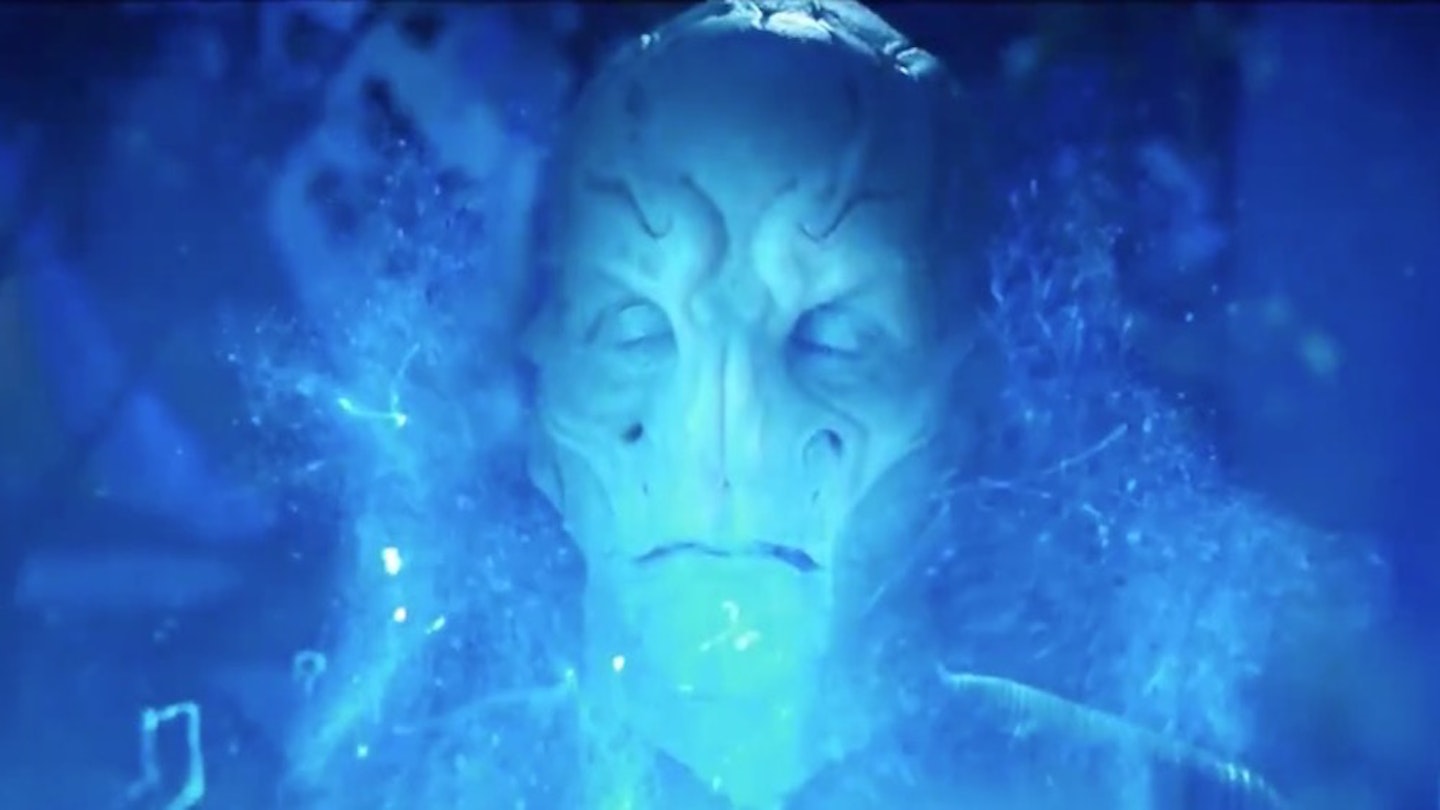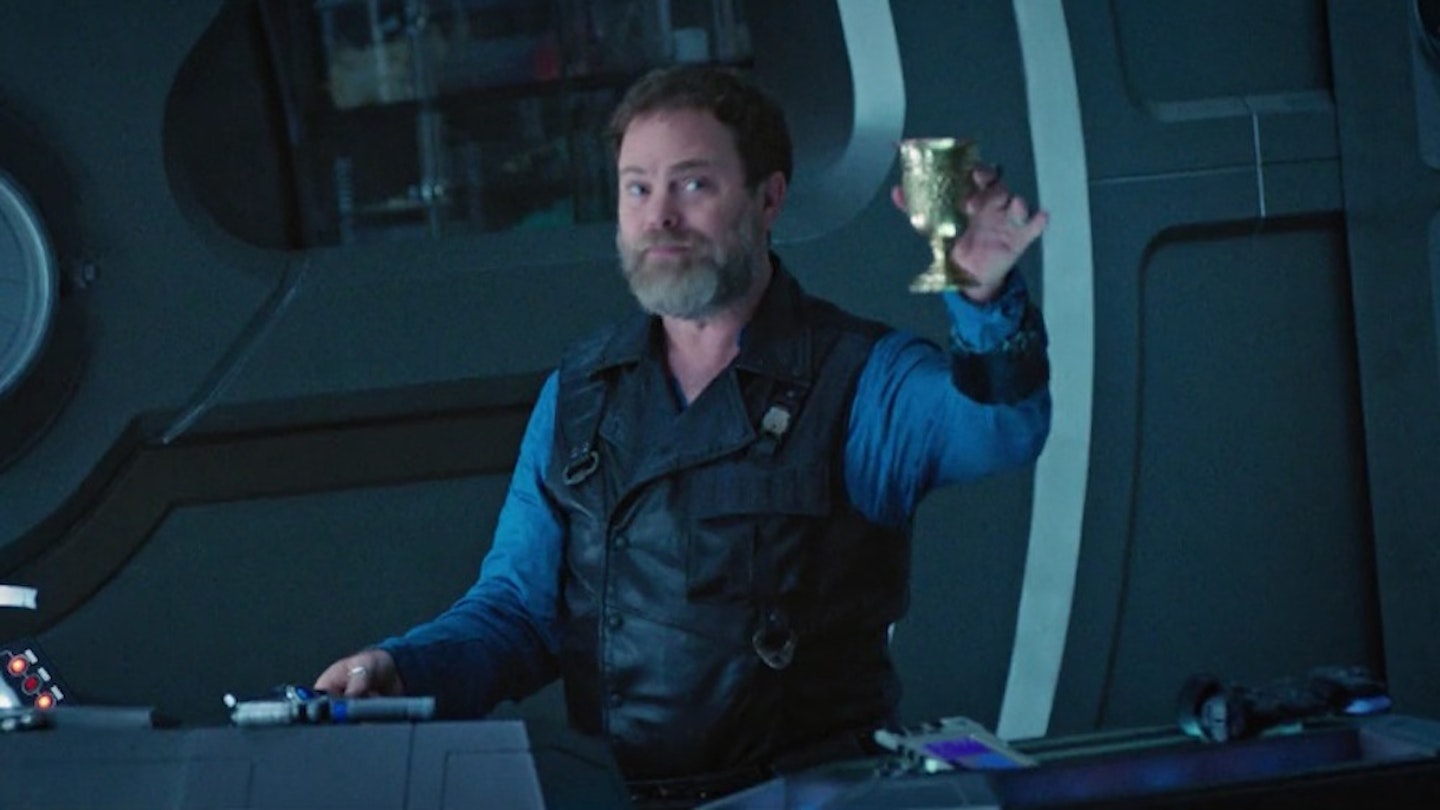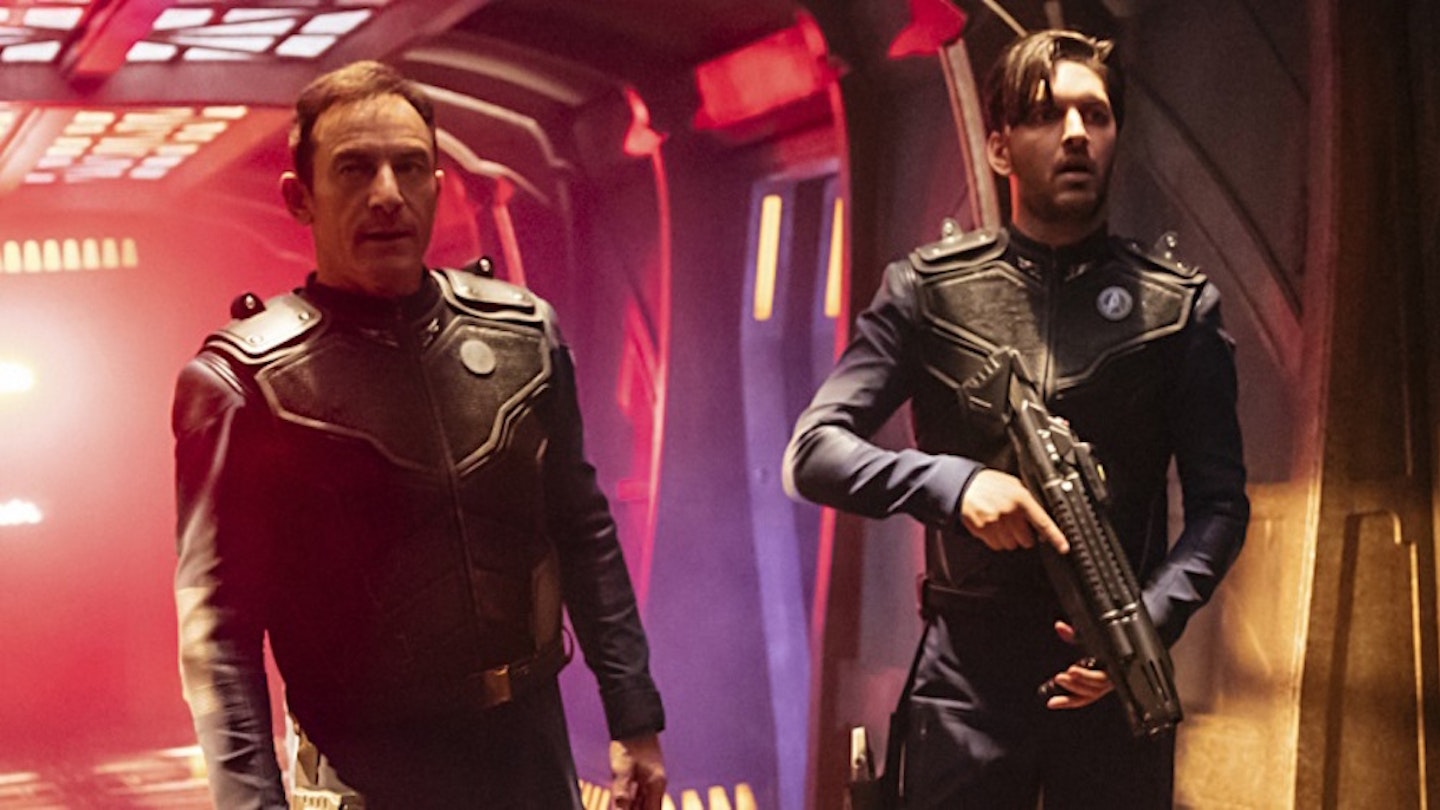Episodes viewed: 6 of 13
For the last two seasons Discovery has been stuck on the canonical naughty step. Beginning a decade before The Original Series, the show has tried to carefully pick its way through the china shop of existing Trek lore without breaking anything valuable. But with the introduction of the Enterprise in Season 2 and the arrival of familiar characters like Spock and Sarek, the show’s existence started to raise problematic questions (Why did no-one else develop a magic mushroom drive? How many secret siblings does Spock actually have?) that set Trekkie teeth to grinding. And so, with this third season, Discovery has wiped the slate clean. Instead of creating an alternate timeline like the J.J. Abrams movies, it has instead flung itself forward to the 32nd century, setting the calendar 800 years later than any Trek series to date.

The effect is both delightful and jarring in equal measure. Gone is the comforting familiarity of Starfleet and the Roddenberry galaxy we know and love, replaced now by an environment that feels more alien than Voyager’s Delta Quadrant ever did. The exemplary season opener, ‘That Hope Is You’, wastes no time in acclimatising viewers to the show’s new normal. The universe “took a hard left” with the advent of a destructive phenomenon known as The Burn, which destroyed most warp-capable vessels. Space is now fragmented, lawless and chaotic; a broken, feral place where hope hangs on by a thread — in short, an environment that veterans of 2020 will feel quite at home in.
Discovery has set itself up to embrace themes of hope, rebuilding, and emerging from the ashes.
Much of the expeditionary catch-up comes via David Ajala’s Book: a courier, cat-lover and Han Solo-esque scoundrel whose bickering flirtations with Michael Burnham are hugely enjoyable and whose addition softens the blow of Shazad Latif’s departure. Sonequa Martin-Green’s Burnham is given the opportunity to shrug off her perma-scowl too, demonstrating a playful sense of humour hitherto in short supply and which peaks with a cracking, drug-induced giggle-fit that hints at a less po-faced third season for the show.
Also joining the roster in Episode 4 are non-binary actor Blu del Barrio as Adira and trans actor Ian Alexander as Gray, further bolstering Discovery’s impressive commitment to representation and marking an interesting character dynamic that will play out as the series progresses. Along with Book, they are extremely welcome additions, particularly in a show that has to date focused more on spectacle than the inner lives of the ship’s extended roster.
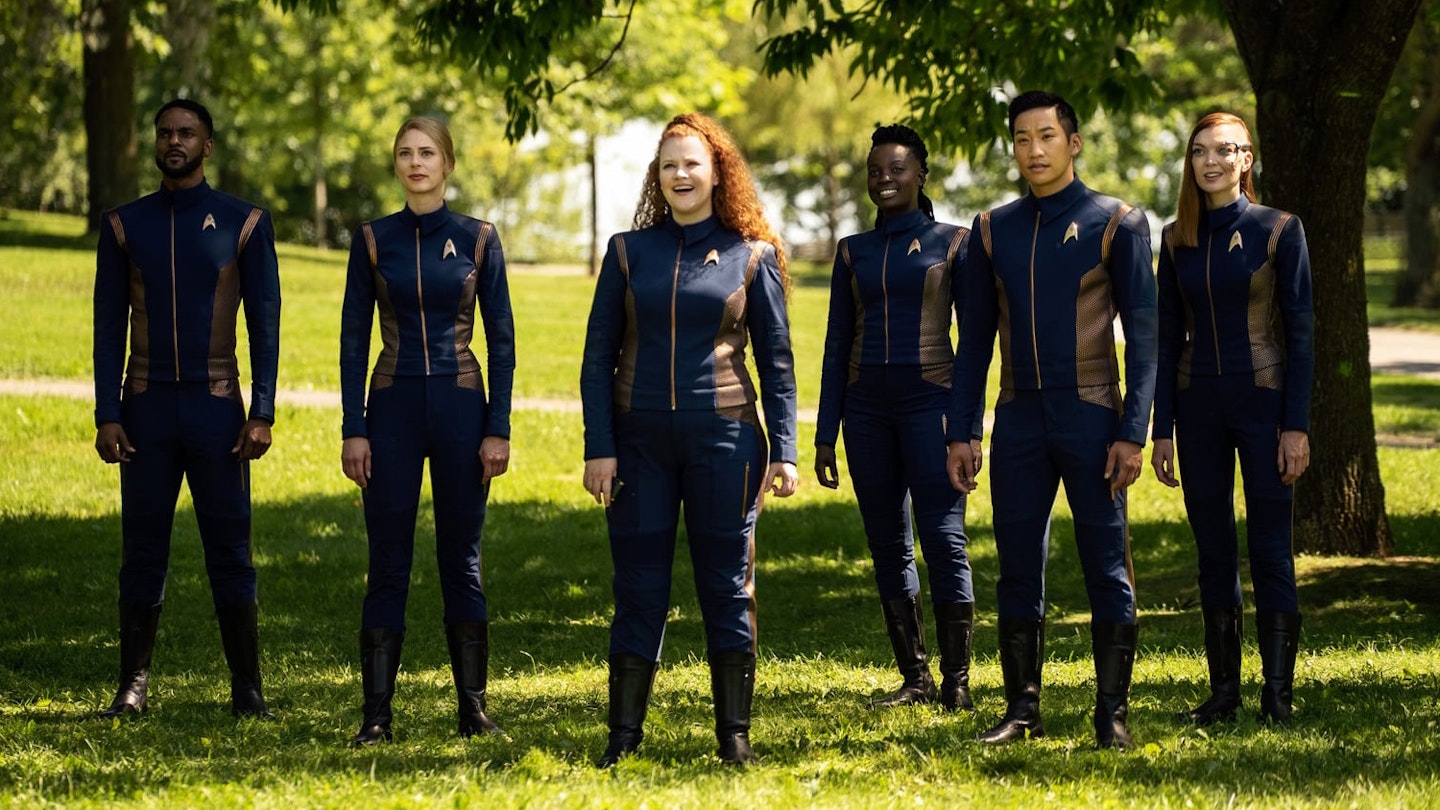
With former showrunners Aaron Harberts and Gretchen Berg having left under a cloud, Alex Kurtzman is now joined by series writer Michelle Paradise and the pair have begun their tenure at the helm with a season ripe with potential. Both setting and dynamic have been upended, with technology we’ve never encountered and a ship that has gone from advanced prototype to museum-piece in the blink of an eye. Discovery has set itself up to embrace themes of hope, rebuilding, and emerging from the ashes — sentiments that can’t help but feel both welcome and apt at the close of our very own Year Of Hell.
